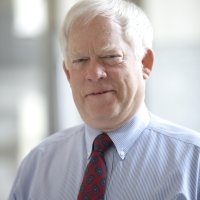Afghan Elections: What's at Stake?
Summary of the Conference Call
This past weekend, over 7 million Afghan citizens, defying a barrage of Taliban threats and violence, successfully voted in the country’s third presidential election. Although the final vote has yet to be tallied, the elections are already being hailed as a significant moment for the country. Not only do they set the stage for Afghanistan’s first peaceful transition from one democratically elected government to another, the elections also send a clear message to the world that, even as international forces prepare to withdraw from the country at the end of the year, Afghanistan’s citizens are intent on supporting democracy.
Calling in from Afghanistan, democratic advocate Nargis Nehan described the elections as an “historic day” for the country. She sees their success not only as a testament to the current administration for its adherence to the constitution and electoral timeframe, but also as a victory for the Afghan Security Forces and Afghanistan’s civil society. The unexpectedly high voter turnout bodes well for the country’s future as it not only signals a rejection of Taliban rule, but also highlights the democratic evolution that is taking place in Afghanistan’s civil society. The fact that approximately 30% of Saturday’s voters were women bolsters her feeling that Afghanistan is moving towards a more open and democratic society that respects the concerns of all its citizens – regardless of gender, religion, or ethnicity.
This sentiment was echoed in Kabul, where Dr. Davood Moradian described the elections as “unifying,” and a clear sign that an “Islamic society can have democratic governments.” However, he also warned that potential pitfalls still loom ahead. The real test lies in how candidates and their supporters respond to the election results. It is now important for the Independent Electoral Complaint Commission to address and investigate all charges brought before them and ensure that all ballots submitted are legitimate and accounted for. Accusations of fraud cannot go unaddressed like they did in 2009; it is crucial that the new administration is seen as legitimate by all of Afghanistan. Saturday’s results proved that this election was “free”; Dr. Moradian now hopes that in the weeks ahead, officials will also determine that it was “fair.”
Michael Kugelman agreed with Dr. Moradian about the future challenges facing the country, though he was also encouraged by Saturday’s strong voter turnout. It is his hope that this show of support for democracy will bolster the international community’s confidence in Afghanistan. He also noted that the high turnout might encourage Taliban leaders to reconsider engaging in peace talks with the government in Kabul, something that he thought prior to elections that the Taliban would not want to do.
“The people have spoken with their large turnout,” remarked Dr. Moradian, and democracy is growing in Afghanistan. With international and domestic support, the country will flourish.
With a new era of leadership about to begin in Afghanistan, Western initiatives are finally bearing fruit. Afghan civilians are increasingly engaged in politics, invested in their future, and poised to succeed in their new democracy. There is a huge amount of work still to be done, but Afghanistan took a large stride forward in last Saturday’s election.
Speakers



Former Director, Asia Program, Woodrow Wilson Center; Former Public Policy Fellow, Woodrow Wilson Center
Hosted By

Indo-Pacific Program
The Indo-Pacific Program promotes policy debate and intellectual discussions on US interests in the Asia-Pacific as well as political, economic, security, and social issues relating to the world’s most populous and economically dynamic region. Read more
